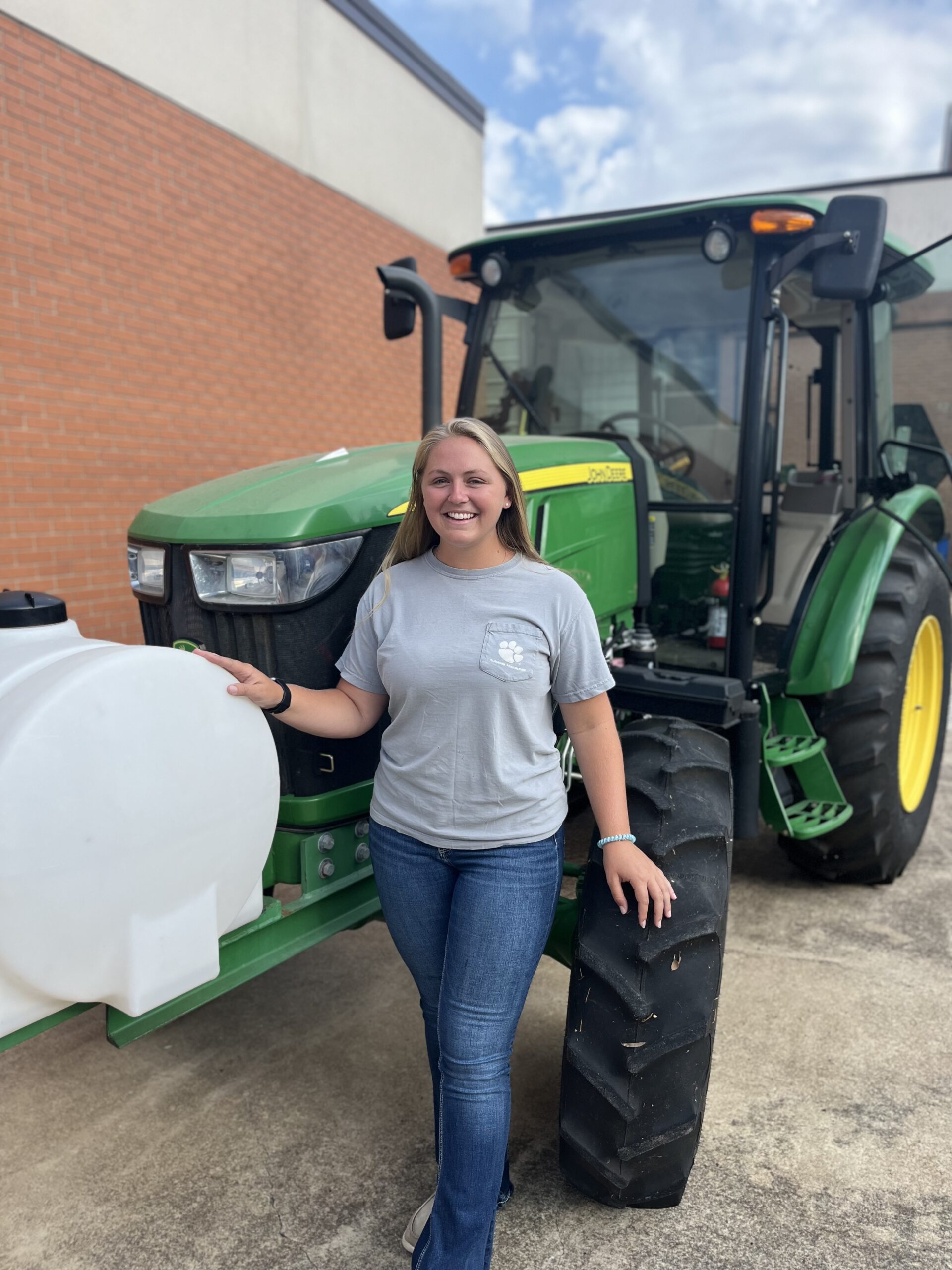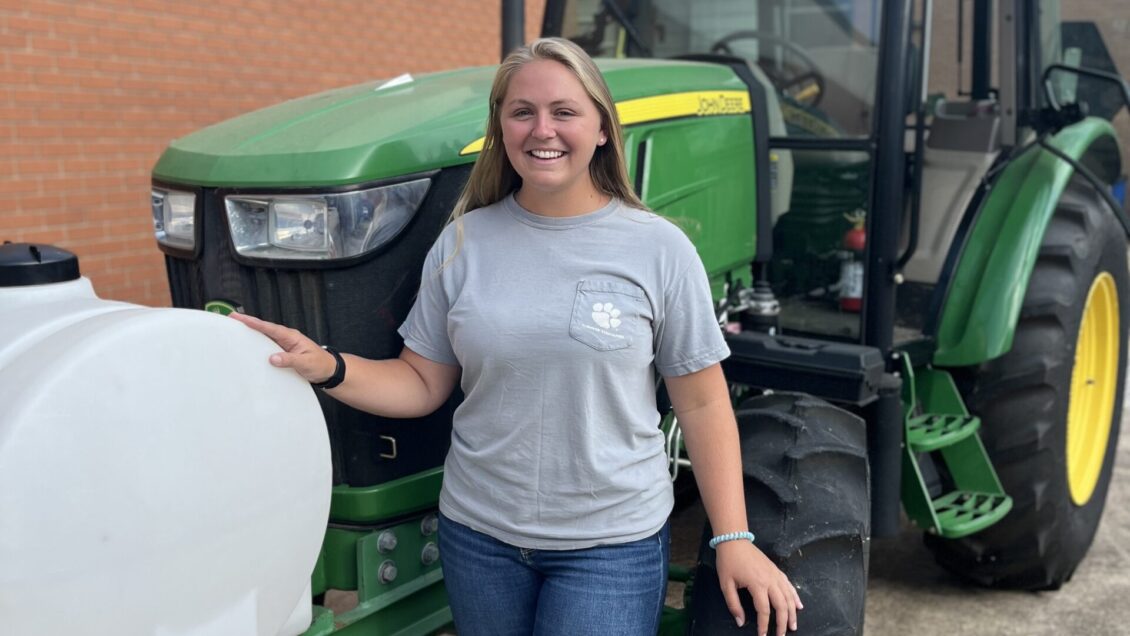Shelley Lovern grew up on a very small farm in a very small town, helping around the shop and working in the garden since she was also very small.
When it came time for college, a relative recommended that the Agricultural Mechanization and Business program at Clemson University — a couple hours and change west of her hometown of Fort Lawn in Chester County, South Carolina — was one she should consider because of the hands-on nature and tight-knit culture of the major.
“When I did a tour, I just fell in love with the atmosphere, the people, and it was so welcoming,” she said. “Everybody always says it has a family feel, and I definitely agree with that.”
Lovern is one of the newest members of the Class of 2023, graduating with her second Clemson degree in August, a master’s of agriculture. During her undergraduate career, Lovern had the opportunity to work closely with the Clemson Agricultural Safety program and, upon graduation, she obtained a graduate position with the program.
“I had grown very close to the program and its goal of educating South Carolina citizens about agricultural safety,” she said. “I decided to continue my work with the program through a master’s degree.”
But because of her own background, growing up working in a rural area and often working in relative isolation, Lovern had an innate understanding of the necessity of agricultural safety.
“A lot of times in agriculture, it’s really solitary work and somebody might not know if you get hurt,” she said. “So, always understanding what’s around you and being aware that there are bad things that can happen when you’re working in agriculture — to always be preventative about it and always educate yourself on what some of those hazards are, whether it be tractor rollover or entanglement in a power take-off shaft or maybe something as simple as not letting your kid ride on the lawnmower with you.”
Hunter Massey, principal lecturer in Clemson’s Agricultural Sciences Department, said the purpose of the Agricultural Safety Program is to increase awareness of agricultural safety procedures, maintenance operations and safety operations for the citizens of South Carolina.
“In doing this work and programming, if we can prevent just one death or injury it is worth all our time,” Massey said. “The events are always positive and allow interaction with all ages with an interest in agriculture, which is a great thing to see develop in real time. I look forward to the future growth of the program here at Clemson University.”
Through her participation in the Agricultural Safety program and her master’s research, Lovern said she was able to “dive into the needs” of agricultural educators across the state.
“So, my research, specifically with those educators, was to meet with them, host interviews and focus groups and just spend time with them to figure out what they need as a group of educators to make teaching agricultural safety easier in the classroom … being able to figure out what their needs are, so that the safety program can better meet those needs,” Lovern said.

And she believes the program can provide the needed resources and support to educators to help promote agricultural safety education in School-Based Agricultural Education programs.
“This experience also allowed me to make vital connections in and around Clemson University that will benefit me in my future endeavors,” she said. “Along with working with agricultural educators, I had the opportunity to work very closely with many of the Fire and Rescue teams throughout the state, and being able to see how excited the various fire and rescue teams were to have Clemson University support was very inspiring and allowed me to see how impactful this university can be throughout the state.”
Another experience Lovern said helped shape her time at Clemson was helping as a teaching assistant in a Principles of Fabrication course at Clemson. While she had taken the class as a student, she said her experience as a female was that it felt hard to ask for help or to be understood by the TA’s at the time.
So, when she began helping with the labs, Lovern said she made a point to ensure that students felt comfortable and confident in the lab, even if they had no previous experience with fabrication.
“Because of this, I was able to get to know the students on a more personal level and help instill a love for working hard and making something, whether it was a project or an aspect of their life, their own,” she said. “This experience allowed me to better understand the students of Clemson University and provide them guidance inside and outside of the classroom.”
Through her time at Clemson, Lovern said she discovered a passion for teaching and helping others and hopes to work in Cooperative Extension to continue doing both those things in the state.
“Working with the safety program has prepared me to meet and speak with various people and relate to their and the community’s needs,” she said. “My goal is to continue my work in agricultural safety and agricultural education to continue to inform the people of South Carolina about the hazards that surround agriculture and how they can not only protect themselves but also those that work around them.”

